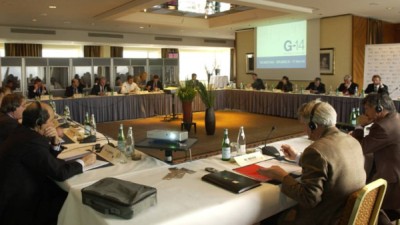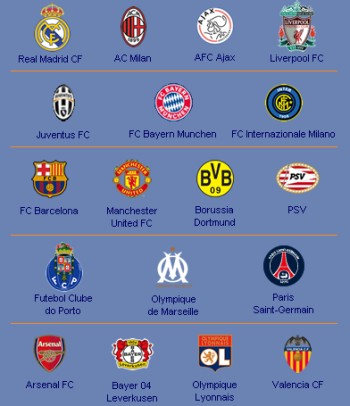|
The Power and the Glory
Last Updated : 29-Mar-2006 byBut on the far more threatening question of their role in shaping the future of the game, their case is much harder to accept – based as it is on pure unadulterated greed.
Put simply, they want a greater say in the running of the game, or else they will leave the UEFA family. They want more European matches, and to ensure the member clubs get to participate in as many of those as possible. In short, they want to wield ever greater influence – to ensure that football is governed with their interests, rather than those of the game as a whole, the centre of attention.
The comparison with what happened in English football fifteen years ago, when the top flight broke away from the Football League, is hard to resist. The difference this time is that, whilst back then the breakaway had the disgraceful blessing of the governing body, the FA, this time it is UEFA itself to whom the clubs are squaring up.
Nevertheless, the motives which underpinned the Premier League remain exactly the same as those in play now: to allow market forces to rule in the game, and to enable those who generate football's wealth to carry home the proportionate slice of the cake. The inevitable consequence, as history in the country can bear witness, is that those clubs already at the top of the tree get richer, and the gap between them and the rest increases.
There is something about it which offends the instinct of the football fan. Yet in seeking to explain this, it is very easy for one to sound like a relic of the loony left at a 1970's Labour Party conference: for the concepts are those of the common good, redistribution and equality of members. The powerful should sacrifice the pursuit of endless riches, in the interests of the many.
It sounds Neanderthal, at least in the context of the real world. Yet football is, defiantly, not the real world; sport in general provides a refuge for those who wish to escape the number-driven world. All sport thrives on competition, and on the unpredictability of a contest – but it requires balances to ensure that healthy competition does not give way to dominance, and to maintain that vital divide between sport and reality.
The trouble is that those balances have been eroded, and the sport has been assimilated into the mainstream of business. As a result the wealthiest clubs in Europe, who broadly make up the G14 – with the obvious, and ironic, exception of Chelsea – know that, in economic terms, they have all the bargaining strength.
They know that they are European club football's crown jewels. It is for matches between Manchester United, or Liverpool and Read Madrid or Juventus that television companies will pay the real money – because they are inherently more attractive to the armchair punter. The clubs suspect - perhaps arrogantly, possibly correctly - that they could go it alone, set up a super-league, and be successful. Although they know that all clubs are inter-dependant, they believe that the clubs further down the food chain are far more reliant on the G14 to prop up their revenues than the G14 are on those other clubs.
UEFA know this too. As a result, they know that the G14 come to the table holding a damn good hand, even if they don't quite hold all the aces. UEFA must call the clubs' bluff: hope that they do not have the courage to go through with a breakaway that would shake European football to its core.
|
UEFA, and the common football fan, must hope that these doubts are sufficiently well formed in the minds of clubs whose smug self-belief has been virtually unshakeable up until now. If the clubs were to leave, then it would leave a rump of teams in each country who would have to reform to make the best of their lot.
Perhaps it would leave us with a newly competitive top flight, since the certain conclusion that can be drawn from the Premier League experiment is that the richest within the league have continued to get richer, and genuine 20-team competition has ceased to exist. It would surely narrow the gap between rich and poor, and might invigorate the whole of the rest of the league structure, by once again offering the possibility of deeds, which for many years have been beyond the compass of most clubs.
Hopefully we will not find out, because English Football is still just about enriched by the presence of the United's, Liverpools and Arsenals. But, regardless of what happens imminently, we may well do one day. Even if the status quo should remain, it offers the inevitable prospect of the wealthiest clubs continuing to exploit their wealth, and gaining even more weight to throw around. Should they fail to get their way this time, they will in all probability grow hungrier, ready for next time.
How to break this cycle? For the governing bodies it is difficult, nigh on impossible. It requires, presumably, the intervention of higher bodies to decree that football, sport, is a different animal, deserving of special rules. For the time being, as Arsenal and Barcelona continue to light up European football's premier competition, their paymasters will continue the far less edifying scramble for power, desperate to bully others in manner those footballers and their dancing feet eschew.


